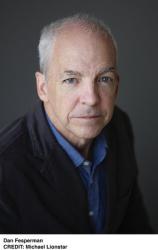The Warlord's Son
Review
The Warlord's Son
I'm not a big fan of "thrillers"; while they have excellent pacing
and usually tell "ripped from the headline" stories, I'm often
disappointed when I finish. Characters who were introduced for some
small reason never reappear, red herrings litter the landscape, and
in the headlong rush, plot holes often develop that aren't visible
until later. I prefer books that stay with me, that make me think
after I'm done, not just while I'm reading.
In some ways, THE WARLORD'S SON is almost an anti-thriller;
relatively little happens in comparison to the breakneck speed,
shocking developments, and intrigue that many thrillers offer. And
while there are problems with its pacing, the story is as
spellbinding as a reader could want.
The main story here is that of Stan Kelly, aka Skelly, a former war
correspondent who has settled into a downhill slide on a suburban
newspaper. He barely knows his children, and thinks his wives are
weird because they insist he spend time at home when there is a
story somewhere to be covered. Skelly is not too likable, but he
is interesting. After the 9/11 attacks, his experience makes
him valuable and he cons his editors into sending him to a war zone
--- into Pakistan and, he hopes, into Afghanistan.
Skelly hires a "fixer" --- the jack of more than just trades, who
acts as translator, not only of language but also of culture. In
this case, his fixer is Najeeb, whose story is much more complex
than Skelly's. While he comes from a powerful family, Najeeb is not
welcome at home and is seen as a traitor to his tribal clan. He
hopes to go to America, the only place where Najeeb and his lover,
Daliya, can be together. Daliya wants an education, seeks to be
modern, and is resisting an arranged marriage; thus, she is a
burden to her family and fodder for gossip. She is seen by many,
who make her business their business, as "no different from
a prostitute." In fact, this phrase appears a bit too often in the
book, but maybe there is no other way for author Dan Fesperman to
describe the all-too-alien realities of women in modern or even
strict Muslim society, where going to a man's apartment is a sign
of depravity and spending the night. Well, there are some who would
say that the attack on Daliya one night is justified.
This book reminds me of good science fiction, where worlds are
created, established and developed along their own internal rules;
even if they're not familiar, you get how they work. Modern-day
Pakistan and Afghanistan are, as drawn by reporter Fesperman, as
alien to us as some distant planets might be. The rules
we're used to, the standards that we --- at times most arrogantly
--- assume are "universal," simply aren't. In a stunning scene, a
man says to Skelly, "You speak of betrayal as if it is something
dishonorable, Mr. Kelly." And my brain went off like firecrackers,
like I was hearing someone say, "You think of fire as hot, do you?"
Of course, doesn't everyone? And Najeeb, the "warlord's
son," tries to explain. "It is complicated," he begins (as is just
about everything in this land, at least to our Western eyes and
brains). "Betrayal is a skill here. An art. Even an honorable one
in its way. Maybe because it is always expected of an adversary."
Whoa.
It's not necessarily about Islam or borders (which again Skelly
realizes are more about some Englishman making decisions that
matter not one whit to the inhabitants of the region) ---
it's about fundamental things like a people's history, and power.
And as I've never understood the lure of power, I found much of
this story baffling. But I'm pretty sure that's how it was
intended.
I want to use words like "meaty," "chewy" and "dense" to describe
THE WARLORD’S SON, but that's just trite and it implies a
long, hard slog through a bad book. This is slow reading, but
that’s not a put-down; Fesperman knows how to write a
convincing account, and his skill with details --- making you feel
the air and the tension, and understanding the minds of the people
in the book --- deserve deliberate attention. The main problem for
me was its pacing; the first two-thirds of the book were too
slow, even for me. Deliberate is good (breakneck speed turns me
off), but it took Fesperman too long to get to the heart of the
story, and then all hell breaks loose.
It's not giving much away to say that it's almost inevitable that
things don't end happily for all the players in this tale. In this
hard time and in this hard land, it's difficult to imagine much of
anything ending happily.
Reviewed by Andi Shechter ([email protected]) on January 24, 2011











